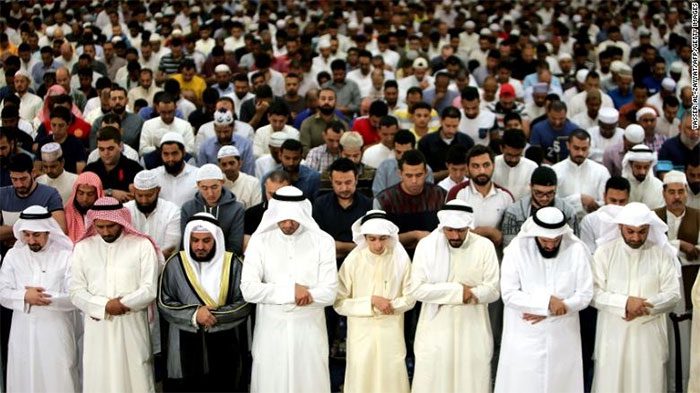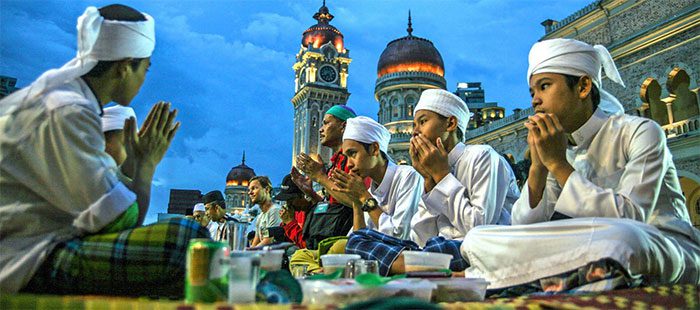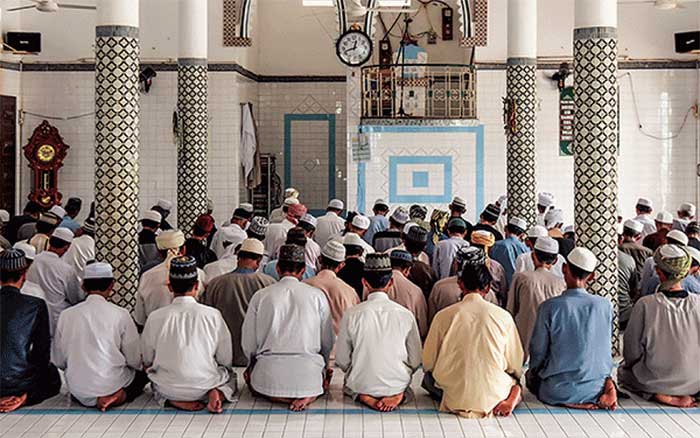In the Islamic calendar, the crescent moon officially marks the first day of Ramadan. For Muslims, this is a time to express devotion to Islam, as well as to reflect and introspect.
Every year, Muslims around the world tend to wait for the new moon to appear, signaling the official first day of Ramadan – the ninth month in the Islamic calendar and the holiest month in their faith.
As the Islamic lunar calendar changes each year based on the moon cycle, this sacred month does not have a fixed date on the Gregorian calendar. The start and end dates of Ramadan are determined by the moon sighting committee in Saudi Arabia.
Accordingly, the first day of Ramadan begins immediately after the new moon appears. However, determining this can be challenging due to the poor visibility quality, which can only be observed for about 20 minutes. If fog or clouds obstruct the naked eye’s view, astronomical calculations will be applied to assess the likelihood of the moon’s appearance in the sky. This year, Ramadan will begin on March 23 and conclude on April 21.

Ramadan holds significant spiritual meaning for the Muslim community.
The Origin of Ramadan
Ramadan, one of the months in the Islamic calendar, is also part of the calendar of ancient Arabs. The term Ramadan is derived from the Arabic “ar-ramad”, which means scorching heat. Legend has it that in 610 AD, the Prophet Muhammad was called by the angel Gabriel and received the Quran – the holy book of Islam. The fasting observed by Muslims during this month serves to commemorate the revelation of the Quran.
The Quran consists of 114 chapters and is regarded by Muslims as the final and complete revelation of the will and message of the holy Allah conveyed to the Prophet Muhammad. It is believed that the Quran contains direct verses revealed by Muhammad on behalf of Allah, while the Hadith includes memories of Muhammad’s sayings and actions, recorded by his companions. Together, they form the doctrines and practices of Islam.

Muslims often fast during Ramadan to commemorate the revelation of the Quran. (Photo: Shutterstock).
Rituals During Ramadan
Ramadan is a sacred occasion for Muslims to move towards spiritual development and build a stronger relationship with holy Allah. Muslim followers focus on prayer and recitation of the Quran. Charitable acts are also encouraged during Ramadan, reflecting the humanitarian aspect of altruism and the spirit of sharing. Immoral behaviors, gossip, lying, and fighting are prohibited during this time.
Fasting during Ramadan from dawn until sunset is a mandatory religious act for all Muslims. However, there are some exceptions. Tourists, the elderly, the sick, and pregnant women are exempt from fasting and may make up for it at a suitable time after the Ramadan period.

Chăm people in An Giang focus on prayer during Ramadan. (Photo: VOV Du lịch).
During Ramadan, Muslims gather with others in the community to break their fast together. They wake up early to have a pre-dawn meal called “suhoor” around 4 AM before the first prayer of the day.
After sunset, usually around 7:30 PM following the conclusion of the sunset prayer, they will have an evening meal “iftar” to break their fast, known as “iftar.” Since the Prophet Muhammad broke his fast with dates and just a glass of water, followers also consume dates during both the suhoor and iftar meals. Dates are highly nutritious, easy to digest, and provide a steady amount of sugar for the body after a long day of fasting.
At the end of Ramadan, Muslims celebrate its conclusion with Eid al-Fitr – “the festival of breaking the fast” – which begins with communal prayers at dawn. During these three festive days, participants gather to pray, eat, exchange gifts, and pay respects to deceased loved ones.
However varied the celebration plans may be, the common spirit of all Muslims is to express faith and purify the soul during this sacred month.


















































